PRESIDENT’S MESSAGE
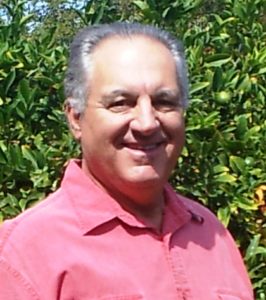
And the beat goes on. As you know, we decided to cancel this year’s conference, for reasons you all are aware of. It was the right decision, as things have not returned to normal, and there is no reasonable expectation that it will for the next few months.
Having said that, it is inevitable that normality will return in the near future. Anticipating that, the Board has been actively preparing for next year’s conference. The tentative dates for 2021 have been submitted to the Orleans to reserve our meeting room(s). More info will be posted on this in the near future, when we receive a confirmation from the Orleans.
In the meantime, our writing contest awards ceremony (virtual) is set for Sunday, July 12, 1 p.m. Pacific Time. Again, further info and instructions on how to attend will be forthcoming.
I know there are those out there who are as computer challenged as I am and are uncertain of their ability to attend the ceremony. In the last three months I have attended at least a dozen virtual Zoom meetings. I found it very simple to sign up and log on. It is as simple as downloading the free Zoom app, then clicking on an invitation link sent to your email a couple of days before the meeting. Once the app is downloaded, you will not have to download it again. Our conference chair, Barbara Hodges, and Joe LeFevre (AKA RJ Beam), will be soon be sending out more details on the process.
My thanks to all the 2020 registered attendees who elected to roll over their fees to the 2021 conference. For all of you out there, I urge you to start planning to attend the 2021 conference. With all this extra time to plan, it will be a great one!
Let’s all do our part to promote the conference and spread the word about the PSWA. Encourage fellow public safety writers to visit the website www.policewriter.com , and maybe become a new member.
I hope you all have been able to use some of the shelter-in-place time to write, and you are getting out as much as is prudent to break up the monotony.
Lastly, several of you have offered opinions and solutions to the Board, and we sincerely appreciate your input. We encourage your participation and urge you all to contact the board at board@policewriter.com with your concerns and suggestions, and stay active in the PSWA. The Board does not look at itself as an entity unto itself. We are a part of the whole organization and are stronger as a group.
See you at the awards ceremony.
Stay safe, stay healthy, and write, write, write!
–John Schembra
President, PSWA
Award Winning Author
VICE-PRESIDENT’S MESSAGE
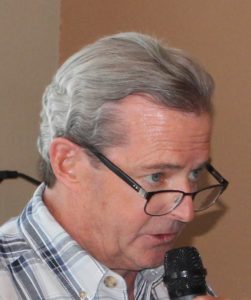
I’m going on record here. Fear did not make me recommend cancelling this year’s conference. I am one of those malcontents who is not wearing a mask outside the house – and I don’t feel my actions are driven by fear. Although my doctors force a mask on me during office visits.
My reason for cancelling were logistics and finance. Things are difficult for public events here in Vegas. We are barred from holding events with more than 50 attendees. Planned groups of less than 50 are mandated to social distance – that means chairs 6 feet away from each other – in all directions of the compass. That would require us to rent a much larger room at greater cost. Attendees started to cancel for whatever reasons. Income for the conference began dropping to the point we would have been in the red; at the same time paying for a larger meeting room.
The places where I get items for the registration bags are still closed or have only just re-opened. The Mob Museum re-opened its doors this week – with masks and distances of six feet or more mandatory – that will make touring the exhibits fun. The Clark County Shooting Complex has yet to re-open. Employees in the Attorney General’s office have not returned to work. When they do it will be half shifts Mon-Thurs. and nobody comes in on Fridays – the state is bleeding money with revenue from gaming and hospitality non-existent since the quarantine shut-down. Our governor is about to mandate masks in public, following California’s lead this week.
I just attended a benefit for Officer Shay Mikalonas, LVMPD, shot in the face by a BLM protester. A thousand people showed up – hardly a mask in sight – zero attempt to social distance. The repercussions will be a spike in COVID cases and our Governor now looking at the news coverage and the lack of social distancing and undoubtedly will punish us again by slowing down his recovery timeline. The spike is cases will likely be augmented by all the close up and personal BLM protests on the Strip this month.
Better strap ourselves in, the bumpy ride is far from over. Alright, I’m going back to work,
–Scott Decker
http://www.rscottdecker.com
SECRETARY’S MESSAGE
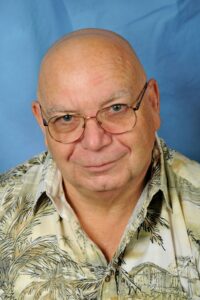 Hello everyone, I’m back in my old position as Secretary of the PSWA. I took off a few years ago for a needed break. I was an original member of the old Police Writers Club, which became the Police Writers Association, and became secretary when we reorganized as the Public Safety Writers Association. I made the suggestion to the board at the time that the organization’s name be changed to the Public Safety Writers Association, to offer a home to all first responders interested in writing.
Hello everyone, I’m back in my old position as Secretary of the PSWA. I took off a few years ago for a needed break. I was an original member of the old Police Writers Club, which became the Police Writers Association, and became secretary when we reorganized as the Public Safety Writers Association. I made the suggestion to the board at the time that the organization’s name be changed to the Public Safety Writers Association, to offer a home to all first responders interested in writing.
The organization has brought in many professionals from the varied fields that take in first responders. We have doctors and nurses from the medical field. We have officers and firefighters from both volunteer and paid firefighters with a wealth of information on fire-fighting, fire prevention and information to share with you.
From the law enforcement field, we have street cops and police supervisors. We also have corrections officers as well as probation and parole officers who supervisor repentant criminals when they return to the community. We also have specialists who have worked in laboratories and can tell what the lab and the lab personnel can really do. And let us not forget our friends on the other side of the radio microphone – our dispatchers and 911 operators.
We also have members from the publishing field. Whether you are a beginning writer or a long-time scribe, you need to know what the current writers’ markets are looking for and where to find them. They can also share their expertise and explain the different publishing formats.
In all the years of attending writers’ conferences I have found the PSWA conference to be the friendliest group of people who are willing to share their expertise with one another.
We are fast approaching the weekend that would have been our annual conference. A lot of discussion and concerns went into making the decision to cancel for health reasons. As said as it is that it was cancelled, I believe it was the correct decision to make.
During World War II the daily casualty reports were called “The Butcher’s Bill”. The local newspaper here in Las Vegas has been keeping a daily “Butcher’s Bill” of Covid – 19 casualties. On Friday, July 3, 848 new cases were reported here in Clark County, which covers Las Vegas. That brings the to total number of county cases to 17,028. As of Friday there were also 3 more fatalities bringing to total Clark County deaths to 435.
The decision to cancel was made with your health in mind as well as your family members. Mask wearing is mandatory as is social distancing – a minimum of 6 feet distance between patrons and guests, and temperatures taken as you enter a casino or restaurant.
Cancelling the conference is a great disappointment for those who were going to attend. It was also disappointing to the presenters who worked so hard gathering their material to help us all become better writers. With this in mind, your board decided we did not want the members of the Public Safety Writers Association to have to pay the Butcher’s Bill.
Please participate in the list serve and ask the experts to help you over a hurdle in your current writing endeavor. Share with your fellow members of the PSWA your writing success stories. Bring your suggestions of topics for discussions to the attention of the members. Ask for help if you are unfamiliar with something in your story. Share your expertise with your fellow members of the PSWA, and finally, invite your friends from other writing groups, with an interest in public safety to join the PSWA, and attend a bigger and better conference in 2021.
Looking forward to seeing you and reading about your successes on the list server and meeting you at the 2021 conference. Keep writing!
— Keith Bettinger, Secretary
THE CASH DRAWER

Well, I picked a great year to become Treasurer, didn’t I? Timing is everything, I guess. I’m grateful to the board for their confidence and hope to live up to expectations.
I am pleased to report that despite the cancellation of the 2020 Conference, the PSWA is on solid financial footing and will have no problems planning and executing a conference in 2021. We’re grateful to those who’ve rolled over their 2020 Conference fees, mostly because we look forward to seeing you next year. I’m in the process of paying refunds for those who wished.
One side note, a cute story about refunds vs. rollovers. One long-time member who hasn’t missed a conference in ages asked for a refund, and apparently felt the need to explain. He certainly plans to attend in 2021, but commented that “at my age, I don’t even buy green bananas.”
There’s no explanation needed for whatever choice you made. We just want to see you in 2021 one way or the other.
In taking over as Treasurer, I asked the board for permission to make a couple of changes, and they agreed.
First, we’ve changed our banking software to allow for better reporting of PSWA’s financial status. The previous software was fine for income and outgo but didn’t have the reporting capability that’s available now.
Why is financial reporting important?
The preferred method for assuring the integrity of transactions (and the safety of our funds) is a two-signature requirement on checks. However, that’s just not possible in a national organization with board members scattered across the country. The mitigation for that is good financial reporting, along with having at least two people who can log into our financial accounts. President John Schembra and I are the only two with access to the root bank accounts. I trust that John will check from time to time to make sure my financial reports are accurate.
The other change coming is a move to Square for transactions at the Conference Bookstore. My hope is that we can take payments with Square and disburse royalties via PayPal. That should result in much faster payment. I’d just ask that on the 3×5 cards listing your payment address you include an e-mail to which I can send your PayPal payment. More on that when we get closer to the conference.
Well, that’s it from here. I look forward to meeting you at the conference in 2021. If we haven’t met, you’ll know me because I’m the guy with dog hair all over my clothes.
–Bob Calkins
PSWA Treasurer
Author of the Sierra the Search Dog series of books for all ages
IT WOULD’VE BEEN A GOOD ONE

Well, it’s mid-June as I write this and our 2020 PSWA Conference has been officially cancelled. My proposed title for this one was “Fifteen Will Get You Twenty,” since it was our 15th conference, and would have been in the year 2020. We had a dynamite line-up, and were planning some new ideas, but as fears about the COVID-19 virus forced the nation into lockdown, the chances for the conference to be held kept slipping farther and farther away. I harbored hopes up until the end that we could still pull it off, but those hopes eventually evaporated. I also hoped that we might shift the dates to later in the summer or even the early fall, but neither of these ideas gained much traction. In the end fear won out, and many people started pulling out and cancelling their registrations.
While I personally believe it will eventually be shown that the whole virus thing was been a bit overblown by the media and the inept and double-dealing politicians, especially in my home state of Illinois, I don’t regret the conference cancellation. The recent civil unrest has been to me much more of a reason to cancel things than any virus fears, and the war against cops has intensified to such a degree that I find myself perpetually angry and depressed. I’m not in a very festive mood and wouldn’t be good company at a conference. But it saddens me more that fear once again has triumphed.
Now I don’t blame anyone for pulling out due to health concerns. Certainly, it’s better to err on the side of caution. What I do hope is that we can all learn from this experience and make more informed decisions in the future. So many of these lockdown restrictions were based on conjectures by “medical experts.” What I found most irritating were the massive contradictions. Wearing a mask is one example. Initially, we were told that wearing a mask was ineffective and would not protect anyone. But just like the weather in Chicago, wait a minute and it’ll change. Now wearing a mask is mandatory for us here in Chi-town and elsewhere. Shaming people who aren’t wearing one has become commonplace, and these same experts are assuring us that it’s totally necessary. The virus can live up to 72 hours on cardboard, we were told before. Now they’re saying that’s not the case. Social distancing is also of paramount importance, unless, of course, you’re at a protest, in which case it doesn’t apply. And neither does tearing down statues of historical figures you don’t like. In Portland, Oregon this past week in Orwellian fashion a mob draped an American flag over a statue of George Washington, set it on fire, and then pulled the statue to the ground. The Ministry of Truth would have been proud.
Remember: Black is white, 2+2=5, Comrade Ogilvy was a great hero, and Oceania was at war with Eastasia: Oceania had always been at war with Eastasia. Big Brother says Oceania is our ally and has always been an ally of Eurasia.
The cancellation and the lockdown have allowed me to get a jump on my own writing projects. I signed on at the end of 2019 to produce four novels in one year’s time. This was quickly expanded to five. Due to the extra time I’ve had to write, and not having to do the program set-up for the conference has allowed me to get three novels done thus far. I have two more to go and may even negotiate another one to be completed before the year’s end. So, in some cases it’s given us more time to reflect, more time to read, more time to write … But even that’s been difficult for me lately.
All these contradictions from Those Who Know Best sent me to my personal library where I picked up my vintage copy of George Orwell’s 1984. It’s one of those novels that really hit the nail on the head as far as prescience. I reread parts of it and wondered if Orwell had a crystal ball as he struggled to finish the novel on the Scottish island of Jura in 1948 while he battled tuberculosis. Think about it: The Ministry of Truth, The Ministry of Love, The Ministry of Peace, The Ministry of Plenty, 2+2=5, doublespeak, negating historical records, unpersons, thoughtcrimes, and Big Brother is Watching You. Way back when I was an undergrad in college, I happened to enter a men’s room at the library and noticed that some artistic soul had used a magic marker to decorate the back of the stall door. He’d drawn a large, feminine looking eye, replete with long eyelashes and mascara. The iris even had a certain glint to it. Underneath the rendition were the words, Big Sister is Watching You. If I’d only known back then … Orwell’s novel has always been considered dystopian sci-fi, but, hell, we’re getting closer all the time. If we don’t all want to end up like Winston Smith and Julia, we’d better wake up and smell the coffee. It’s time to push back.
The PSWA needs your continued support if it’s to survive. I let my conference fee roll over to the 2021 date. We’re planning a virtual awards show announcing the winners of the writer’s contest. Please tune in if you can. I’ve heard that there were a lot of fine entries to the competition this year. And I’m toying around with a trip to Vegas in the fall, maybe late September, for what I hope could be a writer’s workshop of some sort. At this point I have no idea if it’ll materialize, but you got to have hope.
Stay safe, write, and support the PSWA.
–Michael A. Black
Program Chair
PSWA WRITING COMPETITION
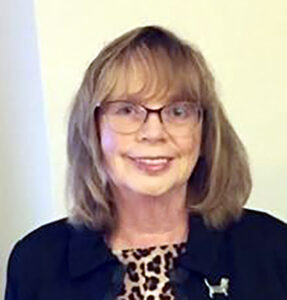 Wow, what a crazy six months this year has been. I hope all of you are staying safe and healthy.
Wow, what a crazy six months this year has been. I hope all of you are staying safe and healthy.
My first year as the Writing Competition chairperson has been a learning experience. One of the things that has come as no surprise is the writing quality of the members of PSWA. We are a talented bunch.
I know for a fact that our judges had a hard time of it, but they did their jobs, and it a timely manner. This is also a good time to give a huge shout out to our judges who donated their time and expertise. This writing competition could not happen without them…thank you, judges.
I was so hoping that Covid-19 would be enough under control that our conference would happen, but it was not to be. I really wanted to hand each of our winners their awards and see their surprised and delighted faces. Well, I can’t give them their awards in person, but PSWA is still doing what we can to make it special.
The PSWA Writing Competition awards ceremony is happening, via Zoom, on July 12th at 1:00 PM Pacific Time. Formal dress is optional. R.J. Beam will be putting the link to the ceremony on our listserv. This is a private function so you will need to use the link to attend. I hope you can all be there to honor our winners.
To all of you who entered, and to those of you who didn’t, it’s time to start thinking of next year’s writing competition. And in 2021 I will be giving your awards to you in person. I look forward to doing so.
–Barbara M. Hodges
PSWA Writing Competition Chairperson
TECHNOLOGY UPDATE
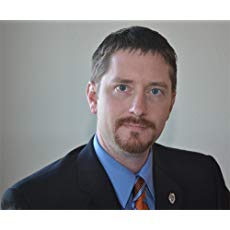 I am sorry we can’t all see each other in person in Vegas this year. However, we still have the ability to meet up in the virtual world. Assuming people are interested in doing some aspects of the conference online.
I am sorry we can’t all see each other in person in Vegas this year. However, we still have the ability to meet up in the virtual world. Assuming people are interested in doing some aspects of the conference online.
To start it off on July 12 we will host the awards ceremony for this year’s writing contest on zoom. This will be a live broadcast anyone can join. If you are not able to attend I will be recording it so people can watch the replay later. A link for the live Zoom event will be sent out on the ListServe a few days before the 12th.
Depending on how the awards ceremony goes the board has talked about doing a monthly Zoom event that would mimic the panels at the conference. We would rotate topics between public safety skills, the craft of writing, and the business of selling books.
There is no requirement to download anything to make Zoom work. It can just run in your web browser. However, you might be better performance if you install Zoom’s software, it can be downloaded here https://zoom.us/download.
I look forward to seeing you all online for the awards ceremony.
–R. J. Beam, Technology Expert
NEWSLETTER EDITOR’S MESSAGE
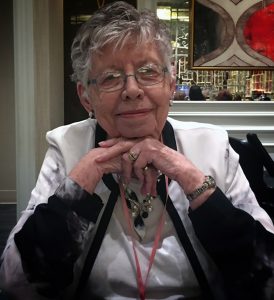
As the editor of the newsletter, I usually don’t write a message as such, though I often contribute an article. This will be a combination of both.
As the editor, I have to thank everyone who contributes an article. I also am happy to post all the wonderful writing news from our members.
During the virus I’ve been busy. All of my Rocky Bluff P.D. mysters are now self-published at the urging of my good friend and PSWA member, Lorna Collins. Not only did she convince me it was the thing to do, but she is doing the heavy work. She’s been editing and publishing for me, and her husband, Larry, has done all the new covers. Once she is done with her editing, then I’ve been going over them too. It all takes a lot of time and energy from all three of us. (I could not have done it without them.)
What I like about self-publishing, I can check what books have been sold myself and don’t have to wait for the royalty report. Also, whenever I do any kind of promotion, I’ll be able to see if it worked and how well.
My hope is that the world will get back to at least a new normal and we can go about our business as usual. I am really, really sad that we are not having our conference this year, it has always been my favorite! And it’s a chance to meet many of our wonderful PSWA members in person.
–Marilyn Meredith who writes the RBPD mystery series as F. M. Meredith
POLICE, PROTESTS, AND THE KILLING OF GEORGE FLOYD
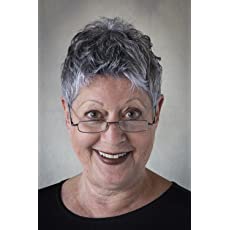 This has been a tough week for me personally. I’ve been fielding calls from friends, relatives, and news outlets. They want to know if I can explain police behavior. They point to the egregious, appalling death of Mr. George Floyd and others. Their questions feel like barely disguised accusations, as if I should be ashamed of being a police psychologist for the past 40 years. I rarely walk away from these conversations feeling happy with my responses.
This has been a tough week for me personally. I’ve been fielding calls from friends, relatives, and news outlets. They want to know if I can explain police behavior. They point to the egregious, appalling death of Mr. George Floyd and others. Their questions feel like barely disguised accusations, as if I should be ashamed of being a police psychologist for the past 40 years. I rarely walk away from these conversations feeling happy with my responses.
To my recollection, no one has ever asked me to explain why thousands of cops risk their safety every day performing acts of kindness, generosity, and bravery to help perfect strangers.
One of the reasons these conversations are uncomfortable is that the current public discourse about race and policing appears to have boiled down to “Are you with me or against me?” It’s as though I can’t be anti-racism and support law enforcement. Or support the protests without being labeled as turning against all cops. Modifying words like some, most, much, and many have been replaced by always and never. It’s ironic that sentences using always and never are always wrong and never right.
To help sort my emotions and thoughts, I sought consultation in the works of two graduate school mentors, Dr. Verneice Thompson and Dr. Charles Hampden-Turner. Dr. Thompson, who died in 1993, was an African American. She devoted her career to the study of power, authority and leadership in organizations as they relate to age, gender and ethnicity. She was a great advocate for diversity, defining it as the ability of people to work together while maintaining rather than disguising or ignoring their differences.
She recognized how compelling it was to focus on individuals and individual acts, but insisted it was more important to concentrate on systemic issues. To her, the real question was “Why does this group need this individual to behave in this way at this point in time?” I think this is what people mean when they say police reform has to go beyond ridding law enforcement of the bad apples.
Dr Charles Hampden-Turner, philosopher and psychologist, taught me that values must be balanced with their opposites. He’d stand in front of a flip chart, marker in hand, and draw lines and circles, creating a ying/yang map of contradictions and connections. “Courage,” he said, “Without caution is recklessness. Caution without courage is cowardice.” His words ring true in this damned if you do, damned if you don’t moment in history, when a thoughtless disbanding of institutions could prove as disastrous as the failure to do anything at all.
So what, as someone who has spent almost four decades counseling cops and trying to humanize their organizations, do I think needs changing?
•Increase the psychological support we give officers. Cops are twice as likely to kill themselves as they are to be killed in the line of duty. The job not only changes people, it traumatizes them. As many as 19 percent of the force may have diagnosable post-traumatic stress disorder. Many more have symptoms at the less than clinical level.
Require officers to undergo annual mandatory confidential psychological wellness checks.
Allow officers to retire without financial penalty at 5, 10, or 15 years.
Add resilience, self-care, emotional intelligence, and de-escalation tactics to basic training. Lower the emphasis on danger training without compromising officer safety.
Change the warrior mindset to a guardian mindset.
Relieve police from dealing with public health problems such as housing, mental illness, and drug addiction.
Find new ways to measure productivity that emphasizes community interaction and crime prevention as much or more than arrests and traffic stops.
Hire more women officers. Women are less like to be involved in complaints of brutality.
As we are learning, racism has contaminated many of our institutions from health care to banking to education. The struggle to undo harm and strengthen equality falls to us all, not just law enforcement. This means we need to stop painting people and groups as all good, all bad or all knowing. We need to listen to each other. This is never easy. Humans are hard-wired to prefer the familiar over the unfamiliar. We resist accepting new information that challenges our long-held beliefs because it threatens our very identities.
I think we are at a tipping point in the fight against racism. Never before have I seen so many white people protesting, questioning their implicit biases and owning up to the advantages of white privilege. Never before have I seen law enforcement, a culture rarely known to choose change over tradition, respond to community protest with such speed by changing policies and firing bad cops.
There’s resistance, of course. Many officers and their families are fearful for their safety and their futures. Many feel unfairly maligned for social ills and betrayed by the communities they have served. Some may adapt, others will choose to leave the job. Some are seeking psychological support. Recruiting new officers in this anti-police environment will be a challenge.
Let’s not screw this moment up by demanding allegiance to any single point of view. Let’s brace ourselves for the discomfort that comes from confronting painful truths. . Let’s not take the easy way out by rejecting people and ideas that don’t conform to what we believe. Human behavior is far too complex. Let us work to solve our problems as Dr. Thompson and Dr. Hampden-Turner have taught, with balance in our values and tolerance and respect for our differences.
References
Kirschman, E. (1996) in (ed.) Jessie Carney Smith. Notable Black American Women, Book II. New York. Gale Research.
Hampden-Turner, C. (1981) Maps of the Mind. New York, MacMillan.
Ellen , PhD
www.ellenkirschman.com
Author of the award winning Dot Meyerhoff mysteries
Sign up for my newsletter at www.ellenkirschman.com
POETIC PONTIFICATIONS
 Writers write, while advocates support, and activists mobilize. I have no Godly understanding of what politicians do except make things worse. We all need advocates from time to time (I am one), and functional activism helped shape western civilization, but it is the writers in prose and poetry, more than anyone else, who memorialize the passions and human sacrifice of cultural revolutions.
Writers write, while advocates support, and activists mobilize. I have no Godly understanding of what politicians do except make things worse. We all need advocates from time to time (I am one), and functional activism helped shape western civilization, but it is the writers in prose and poetry, more than anyone else, who memorialize the passions and human sacrifice of cultural revolutions.
Thereafter, politicians go about screwing it all up yet again. Well, it seems that our country is on the cusp of yet another cultural revolution, supported by well-meaning advocates, yet unfortunately side-railed by narrow-minded, (no critical thinking required) adrenaline-addicted activists. And all of it, predictably, exploited by short-sighted, self-serving politicians.
We watch, in dismay and sadness, as peaceful protests (which I support) turn into riots, businesses are looted and torched, and streets remain co-opted by criminals in the exercise of nothing more than vaunted banality. We scream against the hypocrisy as pictures show autonomous zones being protected by barriers with armed guards while petulant politicians tell us that these things do not work. Cries for social justice echo throughout the country for dead cops followed by calls to defund and reorganize the police, while in one tragic weekend in Chicago, 14 people, including five children, were killed and more than 100 people shot in a barrage of gunfire—sadly, all of it over Father’s Day weekend. Respectively, the political condemnation’s silence was deafening.
In fact, I am beginning to suspect that we are witnessing an evolutionary mutation affecting the inner ear of our politicians whereby they exhibit selective auditory hallucinations that are completely outside their grasp of understanding (and ours). Journalists too, with their abstract biases, which they do not even try to disclaim anymore, lecture us with personal views of sociopolitical ideology as if they are in possession of some superior moral revelation that the rest of us are not. Bravely, I am no longer fearful of COVID-19 as I have been previously exposed to ubiquitous contemporary journalism. I should now have the antibodies to endure anything.
How we emerge from this new cultural revolution no one knows. But emerge we will, just as we have done in the past, from repeated flights out of slavery, witch hunts, famine, monolithic pandemics, religious uprisings, world wars and global financial collapse. It is uncertain what this society will look like on the other side of the rainbow, but we know what it looks like now. Therefore, it is up to writers and poets to memorialize the passion and sacrifice that we are witnessing—that is to say, unless the social media tyrants and neofascist antifa thugs prohibit our ability to do so through forcible suppression of free speech.
Despair not. Writers and poets throughout history have boldly recorded tumultuous times, either in prose, poetry, or creative fiction. From the classics to Plato, to the authors of the Torah, the Quran, and the Bible (especially those who wrote the many unorthodox gospels). From Dante Alighieri, Shakespeare, William Blake, Booker T. Washington (my favorite), James Baldwin, Zora Neale Hurston (the list is too exhaustive), and even the poet that dare not speak his name—the Aesthetic Oscar Wilde, who wrote from the heart and satirized social hypocrisy then spent two years rotting away in prison for doing so—only to be pardoned along with others like the genius Alan Turing, whom history credits with helping to win the war against Nazi Germany. Have I mentioned how much I despise politicians?
This Public Safety Writer’s Association (PSWA) represents a fantastic cadre of writers (no politicians, please). From the passionate poetry of Joe Haggerty to the stinging narrative of Mike Black, which in itself should make journalists envious. And from the intriguingly creative mind of J.L. Greger to the technical accuracy of Tim Dees. Yes, we got it all, including sociopolitical diversity, which I eagerly embrace.
Thus far, I have read many descriptive email perspectives (on our list serve), all pitching-in on these topics and more. But personally, I cannot wait for the PSWA short stories and poetry to hit the shelves. Perhaps, another anthology? I can see the title now: Poetic Pontifications of the Nonviolent Violence of the 21st Century Cultural Revolution, or A Contemporary Discourse in Political Failure.
–David Cropp
Retired Law Enforcement
Domestic Violence Expert Witness Consultant Certified in Domestic Violence – American Academy of Experts in Traumatic Stress Certified Clinical Trauma Professional – Int. Assoc. of Trauma Professionals Psychotherapist Contributing Writer – Police One News.com: http://www.policeone.com/columnists/David-Cropp/
Award winning writer: https://policewriter.com/wordpress/
TRUST OR DOUBT YOUR AUTHOR?
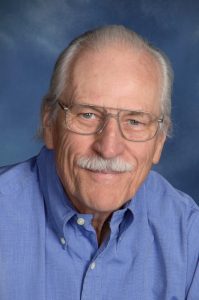
When you read part of a mystery that is supposed to be reasonably accurate and see that it is not, does that change the way you view the rest of the story?
It does for me. When I see big errors in some areas of a mystery, it makes me doubt the areas that I know little about. The author has already demonstrated an indifference to research and accuracy. “Well, it’s just fiction,” doesn’t work for me.
For example, if an author says his character manipulates the “safety” on the side of his revolver, I’m sure the author doesn’t know what he is talking about. He probably picked that mistake up from reading other mysteries written by other sloppy writers. I have found that same error — assuming the latch used to open a revolver’s cylinder for loading/unloading is instead a “safety” — in at least a dozen mysteries, written from WWII to the present, some by MWA Master-level writers. For the record, 99% of all revolvers made from the 1920s on do not have “safety latches.”
How would you research this if you knew nothing about guns? Go online, search “revolvers for sale,” and pick two or three brands. (Smith & Wesson, Colt, and Ruger are the most popular.) Go to the manufacturer’s website and download the Owner’s Manual pdf. You should easily find in the Owner’s Manual an exploded view of all the parts, their nomenclature, and instructions for the gun’s use. On Wikipedia you may find similar information, but Wikipedia will also have some manufacturing history, like dates of production for each model. Not much more than a half-hour of free research will help avoid having at least a third of your readers shaking their heads.
When I see lazy mistakes like the revolver “safety latch,” how can I trust the author when in the same book he writes about brain surgery or astrophysics? I can’t. I have to assume he knows what he is talking about, but he’s already proven he doesn’t. It’s about trust.
An important modifier here is, who is speaking? If it’s the author, or a character familiar with firearms, it better be correct. But if it is just a character speaking, anything can be said as long as it matches the character’s experience and knowledge:
“I checked my last magazine and saw I was down to four rounds.”
“The bullet-holder clip thingy had only four bullets in it.”
The “safety” mistake is what I would call an Unforced Error. Besides guns, this can be done with anything: cars, boats, airplanes, tools, chef’s knives, computers, history, places, highways — the opportunities for Unforced Errors are endless. Don’t write about something new to you without some basic research. Don’t Overwrite, add detail that is not necessary. “A small pistol” often works as well as “An FN model 1910 in .380 caliber,” and “large sedan” works for “Plymouth Roadrunner with the 383.”
Strive for authenticity. Bring me into your protagonist’s world without the distraction of Unforced Errors, and I’ll enjoy your book and buy the next one.
–Jim Guigli
HELP WITH PROMOTION
 Mystery Readers Only: Got a book coming out? A story in an anthology? An article worth publicizing? Check out my blog made up almost entirely of guests who wax about their books to new readers (on Mystery Readers Only), their craft to other authors (Writers Notes) and/or police, fire, EMS personnel who would like to share memories (on Street Stories). PSWA member Ron Corbin has a popular column called “When Pigs Fly.”
Mystery Readers Only: Got a book coming out? A story in an anthology? An article worth publicizing? Check out my blog made up almost entirely of guests who wax about their books to new readers (on Mystery Readers Only), their craft to other authors (Writers Notes) and/or police, fire, EMS personnel who would like to share memories (on Street Stories). PSWA member Ron Corbin has a popular column called “When Pigs Fly.”
We stick with non-controversial material particularly avoiding politics. The goal for authors is to increase your readership. The objective for Street Stories is for civilian authors to get to know the police culture for authentic characters.
Posts are around 500 words with bio, photo, buy link info included so the reader can click to buy. Posts are published weekly on Fridays and the author must be willing to answer comments from readers. Replies require very little time/work.
I advertise heavily on Facebook and other social platforms. I welcome your participation. Email me at badgec65@gmail.com if you’re interested.
Thanks,
–Thonie Hevron
THE INVASION OF MARYLAND
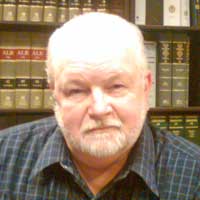
It was September 1862, when across the Potomac they came
It was their first incursion into the North and victory was their aim
Maryland had divided sympathies even though it was a Union State
Lee divided his armies, one to decide Harpers Ferry’s fate
Unable to block the Union advance through South Mountain gaps
The Confederate soldiers retreated and studied their maps
A victory at Harpers Ferry changed General Lee’s strategic mind
He positioned his troops across Antietam Creek for the Union to find
General McClellan’s plan was to attack the left flank, then the right
Assaults after assaults the Union troops fought until night
Twelve hours of horror on the battlefield before the sunset
No advancement into the North did the Confederates get
The bloodiest battle these two armies had waged
23,000 wounded or dead, 100,000 engaged
The next day as both armies held their stead
They gathered their wounded and buried their dead
General Lee again crossed the Potomac taking his army home
And President Lincoln made his Emancipation Proclamation known
Less than three years later at a Virginia Courthouse on an April day
The Civil War ended on General Grant’s and General Lee’s say
I visited Antietam with its monuments and memorials
Listened how battles were fought through a historical tutorial
It was an eerie feeling imagining the carnage, emotions a flood
The ground must have been covered with bodies and blood
Six American generals died leading this battle for power
As they fought each other on the battlefield hour after hour
So many men and boys in blue and gray died on this September
And this is a history of our country we should all remember
–Joseph Haggerty
I HEARD A SYMPHONY
 The other day I received an email from a friend on Long Island. She wrote and told me about a nightly symphony she hears when she takes her evening walk at 7:00 pm. Every time it’s performed, it brings tears to her eyes.
The other day I received an email from a friend on Long Island. She wrote and told me about a nightly symphony she hears when she takes her evening walk at 7:00 pm. Every time it’s performed, it brings tears to her eyes.
The music does not continue for as long as a Beethoven, Mozart or Schubert symphony. This orchestra strongly features its percussion section, but not with the rhythmic grace of the snare drummer playing Ravel’s Bolero. However, these percussion musicians are a very valuable part of the orchestra.
Living in Las Vegas, I had not heard of this orchestra until one night in the closing minutes of a nightly news broadcast I too heard this orchestra perform. It consisted of both adults and children, playing their hearts out as they banged on their instruments; kitchen pots and pans with large metal and wooden spoons. And don’t let us forget those percussionists with two pot lids being played like real cymbals.
They were joined by sirens from the local volunteer fire department and church bells from local houses of worship, sounding like parts of Tchaikovsky’s 1812 Overture. The musicians played their hearts out honoring all the first responders and medical personnel as well as others who once again left their homes and families in an effort to protect the public from the frightful pandemic.
The newscast only showed a couple minutes of these musicians performing their nightly serenade. Like my friend, I stopped what I was doing and listened to them perform. I did so through misting eyes, and yes, I heard a symphony.
–Keith Bettinger
MURDER IN A NUTSHELL

Frances Glessner Lee was a wealthy divorcee who used her money, her energy, her contacts, and her passion for crime investigation to jumpstart the field of forensic medicine in the United States some 80 years ago. One of this country’s first forensic pathologists, George Burgess Magrath, was a Boston friend, and his informal tutelage piqued her interest. Denied the chance to go to college and discouraged from pursuing her rather odd interest in murder, her career didn’t get going until she was in her 50s.
Frances was the country’s only woman involved in the early development of forensic science. She gave funds to support lectures by leading European forensic medicine specialists at Harvard Medical School; donated her library of more than a thousand volumes on crime investigation; established training fellowships; endowed Harvard’s Department of Legal Medicine (the first in the country); and promoted the training of police detectives in forensic methods.
She lobbied her wealthy and powerful connections to replace the outdated system of coroners with one employing trained medical examiners, thus enabling, among other things, many entertaining seasons of CSI. Coroners, an office that still exists in many parts of the United States, are often elected officials and need have no particular forensic, medical, or legal knowledge. They were known to tromp through crime scenes, take a quick look at the body, and decide on the spot whether it was homicide, suicide, or death by misadventure. A list of “causes of death” extracted from coroners’ reports in New York included the enlightened conclusion “found dead.”
Back in the days before virtual reality, one of her educational activities was constructing highly detailed, dollhouse-sized dioramas of crime scenes. These “nutshell studies” were used to train homicide investigators in what to look for in cases of unexplained death. Nineteen of them still exist, and they are occasionally gathered for immensely popular public exhibition.
You may recognize CSI’s slant homage to Lee in its “Miniature Killer” episodes (season 7; see trailer). Look for a copy of the film “Murder in a Nutshell: The Frances Glessner Lee Story” (trailer) or “Of Dolls and Murder” (trailer), both directed by Susan Marks. The trailers show some of her work up close. Bruce Goldfarb’s new biography, 18 Tiny Deaths, came out in February, and the 2004 book by Corinne May Botz, The Nutshell Studies of Unexplained Death, has been reprinted. “The Nutshells are essentially about teaching people how to see,” said one expert familiar with the collection.
–Vicki Weisfeld
Website: www.vweisfeld.com
In 1890’s Indiana, a farmer with a houseful of company has an unwelcome guest—a dead body in the front yard. The county sheriff has questions: Who was this stranger? What was he doing there? Who killed him? Turns out, the simplest question to answer may be Why? “The Unbroken Circle” by Vicki Weisfeld in Pulp Modern, Summer 2020. Order it Here!
MEMBER NEWS
From Mike A. Black: Gunslinger: Killer’s Ghost, and was written under the name A.W. Hart., but it’s me. 😊
It follows the characters in the series, fraternal twins Connor and Abby Mack as they travel the West in the early 1880’s under the tutelage of gunslinger River Hicks. In this one they travel to a town near the Sierra Nevadas as Abby becomes stricken with a virulent fever. The town is run by a megalomaniac and they are forced to take refuge in a nearby miner’s encampment which is being threatened by a mysterious, ghost-like monster purported to be of Native American legend. The trio must deal with a possible epidemic, mob violence, a band of killers, and a purported monster that rips people apart.
It’s part western, part mystery, and all action. I even threw in a bit of romance as well.
Mark Edward Langley announces the second book in his series Death Waits in the Dark will be available this August. It received this review from Publisher’s Weekly:
“Langley’s somber sequel to 2018’s Path of the Dead finds former Marine Arthur Nakai at a Farmington, New Mexico funeral home attending a service for one of his Marine buddies from Afghanistan, who recently shot himself, yet another victim of PTSD. Then Arthur gets a call from an old flame, Margaret Tabaaha, who screams, “Both my sons are dead!” Readers know from the opening chapter that a military-trained sniper has murdered two teenage boys. When Arthur and his police captain friend, Jake Bilagody, investigate, the trail leads them to an oil company doing fracking in the huge San Juan basin, resulting in serious health problems for the local Navajos, who have also been harassed by members of the company’s sinister security firm. The action builds to a bittersweet ending. Descriptions of the starkly beautiful New Mexico landscape contrast with the poignant picture of the state’s poor and alcohol-stricken native peoples. Tony Hillerman fans may want to check this one out.”
Author @ markedwardlangley.com
Author @ Blackstone Publishing
David E Knop is about to go to press on my latest novel, Dead Horses, A Peter Romero Mystery, a supernatural thriller set in the modern West.
Cochiti police officer Peter Romero seeks the killers of expensive Arabian horses. When two men are brutally murdered on his reservation, he investigates but discovers he must first thwart a scheme of mass murder plotted by a powerful and vengeful god who wants nothing more than to see local tribes destroy each other.
MINING SACRED GROUND, POISONED BY GOD’S FLESH and ANIMAL PARTS
Now on ebook at Amazon and Barnes and Noble. Visit my website at: http://davideknopbooks.com/
Al Vande Steeg reports his book, The Black Band is coming out next month with a new title, The Canopy. Aakenbaaken and Kent is publishing it and is hoping to follow up this fall with his next novel, The Dutch Winter.
Unwritten Rules
A dead cop. A missing family. A cover-up that goes to the top.
Hard-nosed L.A. detective Dickie Jones won’t let things lie. When a California Highway Patrol officer is found dead in an apartment and the family who lives there is missing, the relentless cop vows to find out why. But he runs into trouble when his captain orders him off the case, certain it was no homicide.
Ignoring orders to back off, Dickie and Josie follow a trail that leads them to bikers, dirty cops, and a temptress with whom Dickie has crossed paths before. When they stumble upon an undercover operation gone rogue, they find themselves pitted against a ruthless opponent who’ll stop at nothing to keep the truth buried.
Unwritten Rules is the sixth book in the award-winning Dickie Floyd Detective Novel series. If you like authentic crime investigations, unconventional characters and police smartassery served up with a side of suspense, then you’ll savor every page of the latest offering from Danny R. Smith.
Danny R. Smith, Author, L.A. Sheriff’s Homicide, Ret.
Blog: The Murder Memo
Books:
A Good Bunch of Men, Door to a Dark Room, Echo Killers
https://dickiefloydnovels.com/books
Ellen Kirschman’s short story: “Welcome to the Sisterhood” is now in Shattering Glass the first anthology from Nasty Woman Press. All proceeds go to Planned Parenthood. There’s a stellar line-up of contributors:
Scott Decker’s true crime memoir, Recounting the Anthrax Attacks: Terrorism, the Amerithrax Task Force, and the Evolution of Forensics in the FBI, has been optioned by a producer in Los Angeles and we are now negotiating the sale of a portion of the media rights for a multi-episode series based on the book.
http://www.rscottdecker.com
The Mona Lisa Sisters is George Cramer’s debut novel. A historical fiction novel of Lura Grisham Meyer. Wealth cannot protect Lura from the tragedies that befall her in the late nineteenth century. She voyages to Paris after months as a recluse in Grisham Manor. There Lura finds new purpose in life when she meets two American girls who face a tragedy of their own.
“Told alternately from the perspectives of Lura and Joseph, Cramer’s novel is chock full of information about Paris, New York, and law enforcement in the late 19th century. With an action-packed plot, the book features several appearances by notable historical figure Louis Brandeis, who is a longtime friend of the main characters and helps with their legal troubles. The author deftly depicts the era’s American and European societal norms. Full of the period’s technological innovations, old-fashioned behavioral strictures, and elegant language, the work provides a perfect balance of mystery, romance, and history.
A refined and entertaining tale about one determined woman exploring both motherly and romantic love.” Kirkus Reviews
It will be released on August 14, 2020 and is available for per-order now. Here is a shortened URL to his Amazon Author Page where you can order paperback or Kindle version: https://rb.gy/j2m46l
If you would like to host George on a blog tour, give him a shout at gdcramer@msn.com
Lynn Hesse will be interviewed on a Zoom podcast called “Dead To Writes” with Donna Carrick out of Toronto on July 14th at 10:30 a.m. Lynn is the author of Another Kind of Hero.
www.lynnhesse.wordpress.com
PROCEEDS FROM BOOK BY FORMER U.S. MARSHAL RAISES $1,200
SO FAR TO SUPPORT THE U.S. MARSHALS SURVIVORS BENEFIT FUND
Jersey Lawman, a memoir by former U.S. marshal Jim Plousis, has raised at least $1,200 thus far for the U.S. Marshals Survivors Benefit Fund.
Plousis and freelancer George Ingram agreed at the outset that the U.S. Marshals Survivors Benefit Fund will receive the proceeds from his new book, Jersey Lawman. The fund is a private, non-profit corporation formed “exclusively for charitable and educational disbursements of its funds to the surviving family members of active United States Marshals, Deputy U.S. Marshals, Marshals Service Employees, and Special Deputy U.S. Marshals who are killed in the line of duty.”
Daniel J. O’Donnell, chairman of the fund, called the offer “a generous contribution to help the families of slain U.S. marshals.”
Published last year, Jersey Lawman is a first-person narrative that tells the story of Plousis and his more than four decades in law enforcement–from rookie cop in a rough New Jersey Pine Barrens town to the youngest elected county sheriff in America at that time; and from his appointment as U.S. marshal for New Jersey to his assignment as chairman of the New Jersey Parole Board.
Plousis was a police officer in Ocean City, NJ, before being elected sheriff of Cape May County–at age 32. He served in that post for five terms, earning national recognition for his innovative approaches to law enforcement, public safety, and incarceration.
In 2002, President George W. Bush appointed Plousis as a U.S. marshal. In this position he fought to bring the U.S. Marshals Fugitive Safe Surrender program to the Garden State and worked on high-profile cases here and abroad. For seven years afterward he was chairman of the New Jersey Parole Board. He now chairs the Casino Control Commission in Atlantic City.
The late actor Brian Dennehy last year wrote this about the author: “I have played many law-enforcement roles as a sheriff, cop, and federal agent in television and movies, so it is an honor to recommend this book about the real life of a sheriff and U.S. marshal in New Jersey. Jim Plousis is a man I know and have worked with to make Camden, New Jersey, a safer Community.”
The book is published by Publishing with J.A.M, a division of Callahan Services, LLC.
David Knop’s new book is Dead Horses, a different western.
New Mexico tribal police officer Pete Romero embarks on another thrill-packed hunt to find whoever has been leaving dead Arabian horses across the Southwest. A brutal double-murder involving his childhood friend on his own reservation stretches Romero’s skills and loyalties, while trying to unravel the puzzling clues that trail a mysterious stranger in time to stop a long-brewing feud from turning into a modern war.
Romero tightropes between the natural and supernatural while battling wolves, dirty cops, and an unrelenting, murderous grizzly throughout his race to save hundreds of innocent lives before they, too, become part of the dark, hidden side of Southwest history.